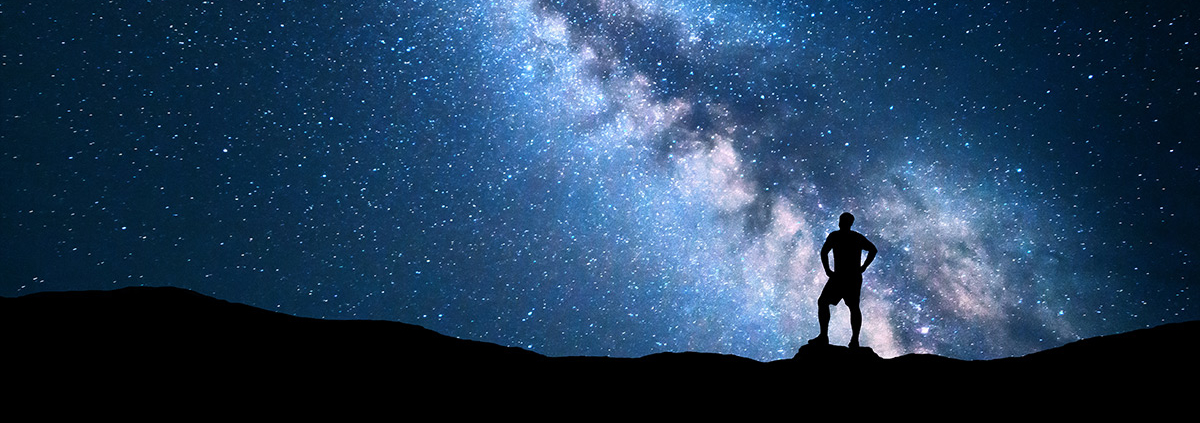#1 Science & Faith
Whether you’re a believer or a nonbeliever, an examination of the unexpected scientific evidence from the last 50 years will fascinate you; it may even startle you. In this seven-part series, we will present, discuss, and engage in Q&A regarding the evidence from many branches of modern science (astronomy, physics, chemistry, biology, geology, paleontology, psychology) and compare the findings with classical philosophy and the traditional religious view, “In the beginning, God created…” You will be encouraged to ponder the evidence and follow it wherever it may lead you. We will discuss the assumptions, both philosophical and theological, that are at play in supporting each position.
Contrary to popular belief, science and faith have had a rich complementary history, beginning with the development of modern science in the 17th century. Nearly all modern historians agree that science was birthed within the traditional biblical worldview and the two collaborated in the academic world for the next 150 years. However, tensions began in the mid-18th century when the Enlightenment movement stressed “reason and experience” and distanced itself from theology. These tensions increased in the mid-19th century when conflict arose over the Darwinian theory of evolution and its implications regarding God. By the end of the 19th century, a political struggle for the preeminent seat of authority came to a head. Evolutionary science won the battle and assumed the mantle in academia. It defined science in terms of the ideology that “nature is all there is,” which is an atheistic worldview (no God is necessary). Since God claimed that he created nature — a theistic worldview — the ensuing ideological battle intensified as neither side was able to prove or disprove the other’s assumptions.
However, what we now know from reason and experience is that
- Whatever begins to exist must have a cause.
- The universe began to exist, so it must have a cause.
- That cause must be transcendent and self-existent, otherwise we wouldn’t be here.
So the question becomes, is nature all there is, or did God create nature? This series will examine the evidence and what it shows.
Up until the 1970s, each worldview was firmly planted on opposing sides. Naturalism (nature is all there is — no God necessary) was increasingly successful in pushing God out of the picture and into gaps of the “still unexplained” (the so-called “God-of-the gaps” argument). But in the last 50 years, science has uncovered an incredibly deeper understanding of
- The formation of the universe, including its origin.
- The privileged status of planet Earth.
- The origin of life.
- The evidence of the fossil record.
- The living cell and the mechanisms required for biological evolution.
- A psychological understanding of the human mind that disembodies it from the biological organ of the brain.
This new scientific evidence mitigates against Naturalism’s assumption of “no God” and greatly strengthens the case for a Creator.
Go to the EVENTS page to see a description of the topic currently being covered and which eventually becomes available on VIDEOCAST. Q&A take place live at the Socrates Forums where a lecture is followed by open Q&A and discussion. Continuing live discussion of the questions raised are held in various local small group settings during the months following.
RECOMMENDED READING FOR FURTHER STUDY
The Great Quest, Invitation to an Examined Life and a Sure Path to Meaning, Os Guinness, IVP, 2022
Cosmic Chemistry, Do God and Science Mix?, John C. Lennox, Lion Books, 2021
The Gang of Three, Socrates, Plato, Aristotle, Neil Burton, Acheron Press, 2023
Philosophical Foundations for a Christian Worldview, Moreland and Craig, IVP Academic, 2017
Unbelievable, 7 Myths About the History and Future of Science and Religion, Michael Newton Keas, ISI Books, 2019
The Logic of Scientific Discovery, Karl Popper, Routledge, 2002
Return of the God Hypothesis, Stephen C. Meyer, HarperOne, 2021
The Structure of Scientific Revolutions, Thomas S. Kuhn, The University of Chicago Press, 1970
The God Delusion, Richard Dawkins, Houghton Mufflin Company, 2006
The Case for a Creator, A Journalist Investigates Scientific Evidence That Points toward God, Lee Strobel, Zondervan, 2004
The Comprehensive Guide to Science and Faith, Dembski, Luskin, Holden, Harvest House Publishers, 2021
Science After Babel, David Berlinski, Discovery Institute Press, 2023
Why I Am Not a Christian, Bertrand Russell, A Touchstone Book, 1957
God, The Failed Hypothesis, How Science Shows That God Does Not Exist, Victor J. Stenger, Prometheus Books, 2oo8
Science & Faith, Friends Or Foes?, C. John Collins, Crossway, 2003
God's Undertaker: Has Science Buried God? John C. Lennox, Lion Books, 2009
God: The Evidence: The Reconciliation of Faith and Reason in a Postsecular World, Patrick Glynn, Three Rivers Press, 1999
The Natural Sciences: A Student's Guide, John A. Bloom, Crossway Books, 2015
Canceled Science, What Some Atheists Don't Want You to See, Eric Hedin, Discovery Institute Press, 2021
Science's Blind Spot, The Unseen Religion of Scientific Naturalism, Cornelius G. Hunter, Brazos Press, 2007
Four Views On Creation, Evolution, and Intelligent Design, Ham, Ross, Haarsma, Meyer, Zondervan, 2017
The New Story of Science, Augros & Stanciu, Gateway Editions, 1984
Science and Christianity: Conflict or Coherence? Henry F. Schaefer III, University of Georgia Press, The Apollos Trust, 2003
The Wedge of Truth: Splitting the Foundations of Naturalism, Phillip E. Johnson, InterVarsity Press, 2000
The Soul of Science: Christian Faith and Natural Philosophy, Nancy R. Pearcey and Charles B. Thaxton, Crossway Books, 1994



